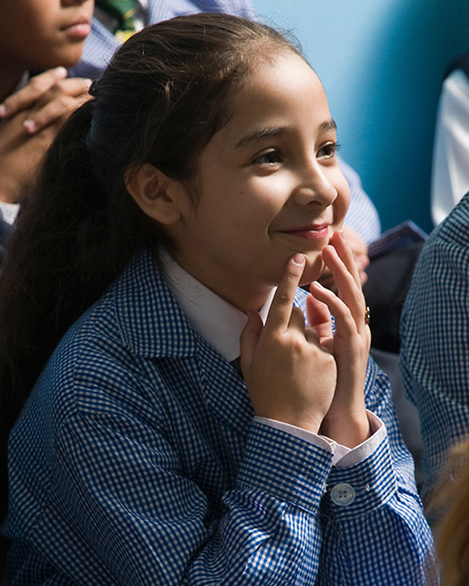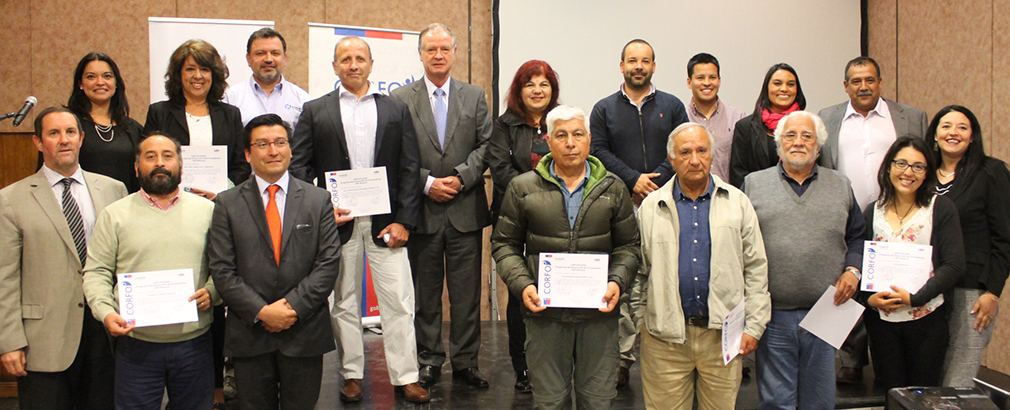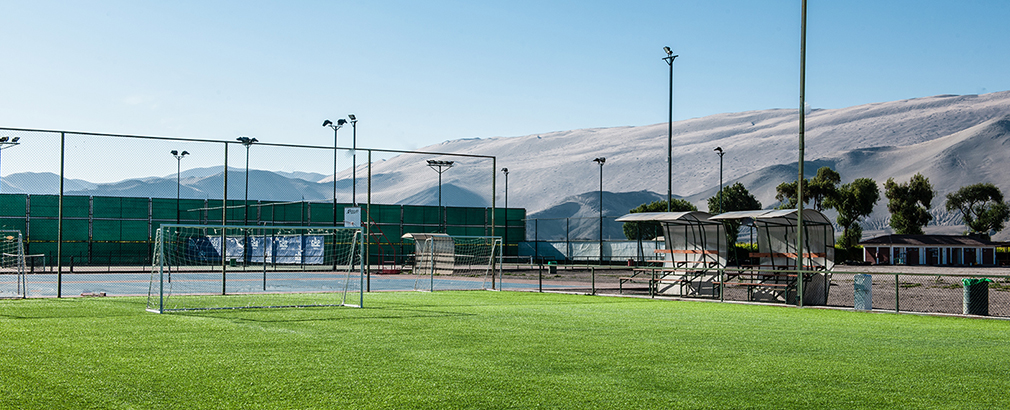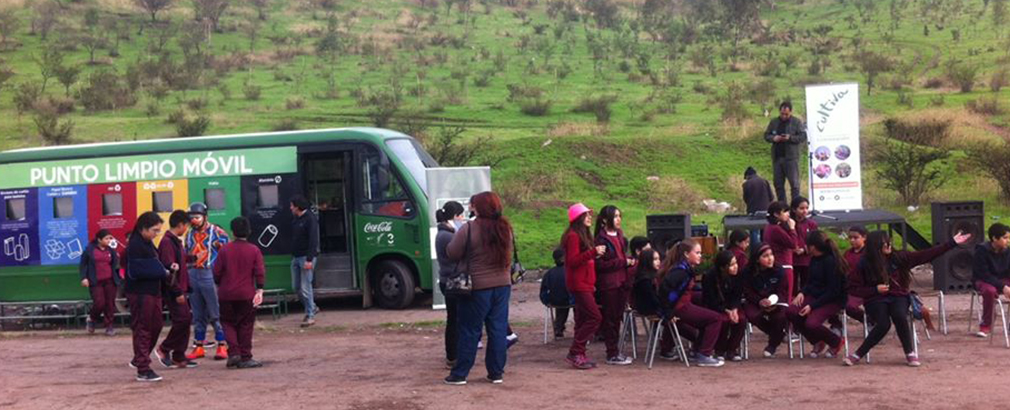Historically, the Group has been part of the growth of its neighboring communities through the creation of employment, local purchases and emblematic contributions toward their development and quality of life.

In 2016, the Group analyzed the social investments of their companies and worked on consolidating a social investment strategy to be implemented as of the year 2017.
During 2016, US$ 2.47 million dollars were allocated to social investments, mainly to initiatives in the areas of education, quality of life and productive development.
| Social Investment Grupo CAP (en miles de US$) | 2015 | 2016 |
|---|---|---|
| Education5 | 413 | 740 |
| Productive Development | 175 | 43 |
| Quality of life | 2,261 | 1,690 |
| TOTAL | 2,849 | 2,473 |
5Fundación CAP is not included.

The companies of the group support a number of initiatives and organizations for the training of children and young people. Among others, it supports the improvement of kindergartens and schools, it maintains agreements to receive in-practice students of various technical and professional specialties, and it offers scholarships for higher studies.
Among such emblematic contributions, 30 years ago, CAP Mineria created the Colegio Ambrosio O’Higgins School in Vallenar, which nowadays exhibits an outstanding academic performance at the regional level, and the company has maintained its commitment.
Another example of the sustained commitment of CAP to education is the CAP Contest for Architecture Students, which, for 30 years now has been encouraging the creative work of architecture students and promoting the use of steel as an architectural and structural element. The 2016 winning team, in addition to receiving a financial stimulus, represented Chile at the 9th version of the Alacero International Competition, sharing the first place with the Brazilian team.
Ever since the year 2006,The CAP Foundation has focused on education in order to positively impact the progress of Chile through innovative, inclusive and long-haul projects. Among its main activities is the program: Learning in Family, at both the Basic and Early Childhood Education levels. Additionally, it delivers other contributions such as scholarships for higher studies, which this year reached 73 young people from the town of Caldera, and Cultural Billboard, which was circulated in the schools in which it works.
The Learning in Family program was recognized in 2016 by Harvard University as one of the most innovative initiatives in educational family involvement. On the other hand, after three years of research, the assessment made by the j-PAL Research Center showed significant impacts in the schools where the program is applied. The improvements recognized by teachers, parents and students in learning support variables, relationship with the environment, coexistence, academic performance, reduced violence and increased assistance demonstrate the effectiveness of the program upon involving parents in the schooling process of their children and in reinforcing the importance of working together on the Family-School link in order to improve education.
The Learning in Family program in Basic Education has benefited 60 public schools, 2,000 teachers, 28,000 students and 21,000 families since the year 2010. In 2016, it began to implement the program in Early Childhood Education. As a first stage, it will be applied in 21 crib rooms and public kindergartens of the municipalities of Colina and Talcahuano, which will benefit 1,700 children and their families as well as 300 educational agents. The program runs on schools and kindergartens during a 3-year period and prepares such institutions toward ensuring their subsequent autonomous continuity.

CAP cares to support the economic and social development of the communities in the medium and long term by providing tools that enable a better quality of life. Examples of this are the apprentice programs carried out by some of its companies and the training programs developed through the Sence (in its Spanish acronym) tax exemption educational franchise.
At CAP Mineria and CAP Acero, a systematic diagnosis of the communities is carried out in order to develop a Sence training plan for them. In 2016, more than 460 persons were trained in different areas to enable their employability and develop business undertakings. In 2016 CAP Mineria was distinguished by the Sence for its contribution to training and employment, under the category "+ Trained".
Cintac and Tupemesa carry out a number of gratuitous professional courses and workshops on steel construction with a theoretical and practical approach for construction specialists. These courses are a business for social needs program because they have the dual purpose of providing development alternatives to the community, while at the same time promoting the use of the company products such as Metalcon® building systems, covers and paneling. Such activities include training targeted at women specializing in the field, social foundations, and inmates of the Santiago Penitentiary, among others.
The company has been an important part of the economic development of the communities, driving the local economy through employment, the purchase of goods and services, and by stepping up the installation of capacities both to mining suppliers and other productive sectors.
Of the companies in Chile, in 2016 96% of the workers resided in the same region where they worked and purchases were made for 187 million dollars to 1,817 local suppliers.
In order to step up local suppliers, CAP Mineria carries out supplier development programs whose objective is to promote the installation of such capacities.
Within the framework of the program of innovation developed by CAP Mineria, in conjunction with the Universidad Adolfo Ibáñez, a team was formed with the mission of increasing value generation in communities close to operations, through additional initiatives that historically have been the hallmark of the company.
One of the programs that have emerged from this project is REDEmprende (Entrepreneurship Network) which aims to become a platform of support, advice and support for local entrepreneurship projects. The program is implemented at Huasco’s Communities’ Office, which has opened up a forum for entrepreneurs.
The harmonious development of regions involves the coexistence with other productive activities. In the case of CAP Mineria, its support has focused on the promotion of small-scale fisheries and small-scale agriculture.
The company promotes small-scale fisheries through competitive grants and the participation in Public/Private Task Forces for productive development. During 2016, advice was provided to fishermen in applying for public finance funds before the Municipality of Caldera and to a fund financed by CAP Minera in the Municipality of Huasco.
For more than twenty years CAP Mineria has contributed to the agricultural development of the Municipality of Huasco through its Parcela Olivos de Bellavista olive tree farmland. It started as medium-scale experimental olive cultivation project. Of late, however, it has become a space of meetings for the transfer of technology and best practices for olive growers and students in the area.
| III y IV Región | VIII Región |
Región Metropolitana |
||||||||||
|---|---|---|---|---|---|---|---|---|---|---|---|---|
| Minería | Infraestructura | Acero | Cintac | |||||||||
| 2014 | 2015 | 2016 | 2014 | 2015 | 2016 | 2014 | 2015 | 2016 | 2014 | 2015 | 2016 | |
| % Of local workers | 97% | 97% | 97% | n.i. | 67% | n.i. | 99% | 99% | 99% | 70% | 94% | 100% |
| N° local suppliers | 1,191 | 1,008 | 836 | n.i. | 76 | n.i. | 445 | 480 | 435 | 676 | 556 | 546 |
| % local suppliers | 41% | 42% | 38% | n.i. | 80% | n.i. | 41% | 37% | 36% | 94% | 94% | 95% |
| Local purchases in ThUS $ | 307.0 | 148.1 | 91.5 | n.i. | 20.9 | n.i. | 85.0 | 83.6 | 71.8 | n.i. | 158.6 | 23.7 |

In order to contribute to the quality of life of the communities, CAP offers various spaces and sports instances, of culture and recreation, in addition to collaborating on urban improvement initiatives.
The company has founded and supports several sporting centers in the regions where its operations are present: The Romeral and Algarrobo Sporting Club; The Guacolda Sporting Club in Huasco; The Copiapo Valley Sporting Club; The Huachipato Sporting club and the CAP Stadium, in Talcahuano. Through them, it develops several recreational and sporting activities; most of them open to the community at large. For example, during 2016, swimming, soccer, tennis, folklore, pilates, dance and karate courses, among others, were offered by these clubs.
Some of the cultural initiatives supported by the Group include: The Tunas & Estudiantinas music festival in La Serena and the International Folklore Festival in the Region of Coquimbo.
In 1958, under the aegis of CAP Mineria, the Steel Artists Cultural Corporation was born; well recognized for its leadership in the regional arts scene. During 2016, the Corporation maintained a varied selection of activities and was incorporated into the National Council for Culture and the Arts (CNCA, in its Spanish acronym).
On the other hand, La Serena's Japanese Garden, a tourist attraction center and of connection with the oriental culture was home to events and exhibitions such as the ninth version of the Japanese Tea Ceremony.
In December 2016, jointly with Ferronor and the municipalities of Vallenar, Freirina and Huasco, CAP Mineria offered recreational trips on the so-called Remembrance Train, in order to evoke pleasant emotions among the residents of the Region of Atacama who 40 or 50 years ago used this means of transportation.
On the other hand, TASA manages, through local non-governmental organizations or the municipality, its contributions to the quality of life in the Municipality of El Tigre, with projects such in urbanization, access, streets, public lighting systems and improvements in hospitals, schools and kindergartens.

CAP’s responsible development vision of contributing to society and to operate in harmony with the environment, is reflected both in innovation in its operations and in its contributions to various environmental projects.
In the 8th Region, ever since its beginnings in the decade of the 1990’s, CAP Acero has been working in the protection of the wetlands adjacent to its facilities and in various reforestation initiatives inside the plant’s own premises, and also in enclosing the perimeter of its property using green shrub screens.
A flagship project of the Group in the fourth region was the construction of La Serena’s Japanese Garden in 1994. Currently, CAP Mineria takes care of its management and conservation. The Park is an attraction for more than 150 thousand residents and tourists who visit it each year.
In 2016, CAP Mineria once again participated in beach cleaning operations organized in Coquimbo, Huasco and Caldera by their respective Port Authorities.
In order to support the dissemination of non-conventional renewable energies (NCRE), in 2016 Cintac became part of one of the most important initiatives on this issue in the Second Region. It donated the photovoltaic structures for the solar platform of the University of Antofagasta.
In 2016, a Clean Point was inaugurated at Cintac’s headquarters in order to begin waste recycling at its corporate building. Here, more than two tons of paper and plastics were recycled. Additionally, Huasco’s Clean Point (a contribution of CAP Mineria in alliance with the Japan School) received more than 1,500 visits during 2016 and recycled about 26 tons of waste material.
In Argentina’s El Tigre Municipality, the company launched workshops organized by the Proyectar Foundation with the idea of raising awareness among TASA’s workers and their families to apply recycling criteria at their workplaces and homes.